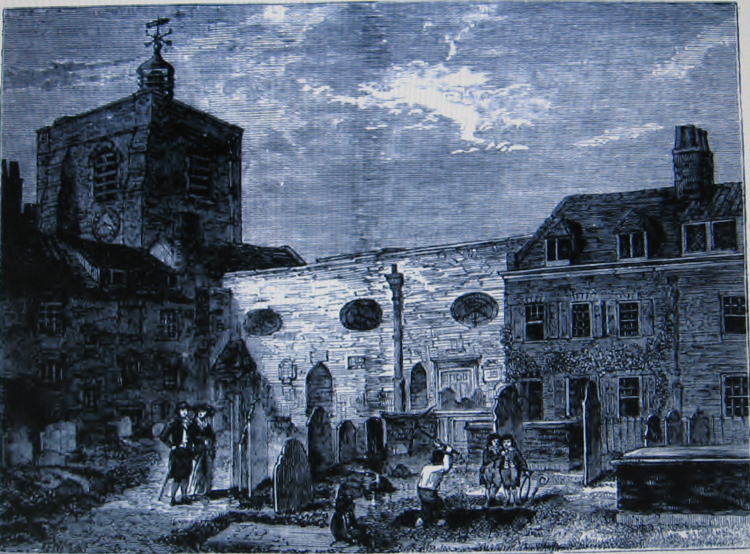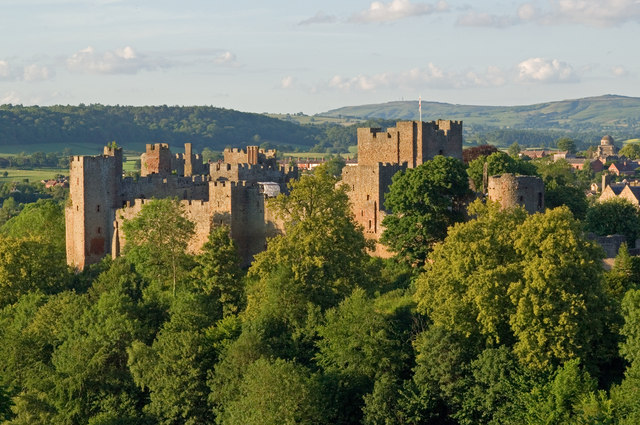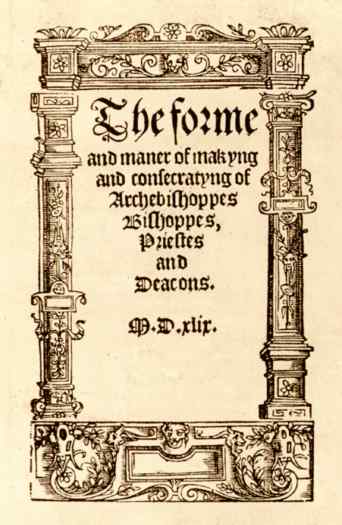|
Nicholas Heath
Nicholas Heath (c. 1501–1578) was the last Roman Catholic Archbishop of York and Lord Chancellor. He previously served as Bishop of Worcester. Life Heath was born in London and graduated BA at Oxford in 1519. He then migrated to Christ's College, Cambridge, where he graduated BA in 1520, MA in 1522, and was elected fellow in 1524. After holding minor preferments he was appointed archdeacon of Stafford in 1534 and graduated DD in 1535. He then accompanied Edward Foxe, Edward Fox, bishop of Hereford, on his mission to promote a theological and political understanding with the Martin Luther, Lutheran princes of Germany. His selection for this duty implies a readiness on Heath's part to proceed some distance along the path of reform; but his dealings with the Lutherans did not confirm this tendency, and Heath's subsequent career was closely associated with adherence to Roman Catholicism. In 1539, the year of the Six Articles (1539), Six Articles, he was made bishop of Rocheste ... [...More Info...] [...Related Items...] OR: [Wikipedia] [Google] [Baidu] |
The Most Reverend
The Most Reverend is a style applied to certain religious figures, primarily within the historic denominations of Christianity, but occasionally in some more modern traditions also. It is a variant of the more common style "The Reverend". Anglican In the Anglican Communion, the style is applied to archbishops (including those who, for historical reasons, bear an alternative title, such as presiding bishop), rather than the style "The Right Reverend" which is used by other bishops. "The Most Reverend" is used by both primates (the senior archbishop of each independent national or regional church) and metropolitan archbishops (as metropolitan of an ecclesiastical province within a national or regional church). Retired archbishops usually revert to being styled "The Right Reverend", although they may be appointed "archbishop emeritus" by their province on retirement, in which case they retain the title "archbishop" and the style "The Most Reverend", as a courtesy. Archbishop Des ... [...More Info...] [...Related Items...] OR: [Wikipedia] [Google] [Baidu] |
John Bell, Bishop Of Worcester
John Bell (died 11 August 1556) was a Bishop of Worcester (1539–1543), who served during the reign of Henry VIII of England. Education Bell attending Balliol College, Oxford, and later at Cambridge where he took the degree of LL.B in 1504. Career Following this advancement he was promoted to other posts: ::"Canon and prebendary of the collegiate church of St. Stephen in Westminster Palace (until 1539);";Susan Wabuda, 'Bell, John (d. 1556)', ''ODNB'', Oxford University Press, 2004 ccessed 2004/ref> 1526 Collated: Warden of the church of Stratford-Upon-Avon, Preceptor of the hospital of St.Wulstans,Pearce, E.H., ''Hartlebury Castle'', SPCK, London 1926. pg. 101 Magister, Bachelor of Civil law, acta capitularia (Chapter act book) Coventry & Lichfield diocese''Fasti Ecclesiae Anglicanae'' 1300–1541, Volume I, Lincoln Diocese, compiled by H.P. F. King; Volume IV, Monastic Cathedrals (southern province), compiled by B. Jones; Volume V, St. Paul's, London, compiled by, Joyce M. H ... [...More Info...] [...Related Items...] OR: [Wikipedia] [Google] [Baidu] |
Reginald Pole
Reginald Pole (12 March 1500 – 17 November 1558) was an English cardinal of the Catholic Church and the last Catholic archbishop of Canterbury, holding the office from 1556 to 1558, during the Counter-Reformation. Early life Pole was born at Stourton Castle, Staffordshire, on 12 March 1500, the third son of Sir Richard Pole and Margaret Pole, 8th Countess of Salisbury. He was named after the now Blessed Reginald of Orleans, O.P. His maternal grandparents were George Plantagenet, 1st Duke of Clarence, and Isabella Neville, Duchess of Clarence; thus he was a great-nephew of kings Edward IV and Richard III and a great-grandson of Richard Neville, 16th Earl of Warwick. Pole received his early education at Sheen Priory. He matriculated at Magdalen College, Oxford, in 1512, and at Oxford was taught by William Latimer and Thomas Linacre, graduating with a BA on 27 June 1515. In February 1518, King Henry VIII granted him the deanery of Wimborne Minster, Dorset; after which he w ... [...More Info...] [...Related Items...] OR: [Wikipedia] [Google] [Baidu] |
Cardinal (Catholicism)
A cardinal ( la, Sanctae Romanae Ecclesiae cardinalis, literally 'cardinal of the Holy Roman Church') is a senior member of the clergy of the Catholic Church. Cardinals are created by the ruling pope and typically hold the title for life. Collectively, they constitute the College of Cardinals. Their most solemn responsibility is to elect a new pope in a conclave, almost always from among themselves (with a few historical exceptions), when the Holy See is vacant. During the period between a pope's death or resignation and the election of his successor, the day-to-day governance of the Holy See is in the hands of the College of Cardinals. The right to participate in a conclave is limited to cardinals who have not reached the age of 80 years by the day the vacancy occurs. In addition, cardinals collectively participate in papal consistories (which generally take place annually), in which matters of importance to the Church are considered and new cardinals may be created. Cardina ... [...More Info...] [...Related Items...] OR: [Wikipedia] [Google] [Baidu] |
Lord Chancellor
The lord chancellor, formally the lord high chancellor of Great Britain, is the highest-ranking traditional minister among the Great Officers of State in Scotland and England in the United Kingdom, nominally outranking the prime minister. The lord chancellor is appointed by the sovereign on the advice of the prime minister. Prior to their Union into the Kingdom of Great Britain, there were separate lord chancellors for the Kingdom of England (including Wales) and the Kingdom of Scotland; there were lord chancellors of Ireland until 1922. The lord chancellor is a member of the Cabinet and is, by law, responsible for the efficient functioning and independence of the courts. In 2005, there were a number of changes to the legal system and to the office of the lord chancellor. Formerly, the lord chancellor was also the presiding officer of the House of Lords, the head of the judiciary of England and Wales and the presiding judge of the Chancery Division of the High Court of Justic ... [...More Info...] [...Related Items...] OR: [Wikipedia] [Google] [Baidu] |
Strand, London
Strand (or the Strand) is a major thoroughfare in the City of Westminster, Central London. It runs just over from Trafalgar Square eastwards to Temple Bar, where the road becomes Fleet Street in the City of London, and is part of the A4, a main road running west from inner London. The road's name comes from the Old English ''strond'', meaning the edge of a river, as it historically ran alongside the north bank of the River Thames. The street was much identified with the British upper classes between the 12th and 17th centuries, with many historically important mansions being built between the Strand and the river. These included Essex House, Arundel House, Somerset House, Savoy Palace, Durham House and Cecil House. The aristocracy moved to the West End during the 17th century, and the Strand became known for its coffee shops, restaurants and taverns. The street was a centre point for theatre and music hall during the 19th century, and several venues remain on the St ... [...More Info...] [...Related Items...] OR: [Wikipedia] [Google] [Baidu] |
York House, Strand
York House (formerly Norwich Place or Norwich Palace) was one of a string of mansion houses which formerly stood on the Strand, the principal route from the City of London to the Palace of Westminster. Building Norwich Palace It was built as the London townhouse of the Bishops of Norwich not later than 1237, and on 4 February 1536 it was given by King Henry VIII to his favourite Charles Brandon, 1st Duke of Suffolk in exchange for Suffolk House in Southwark, the Bishop having been provided with a new residence in Cannon Row, Westminster. York House It came to be known as York House when it was granted to the Archbishop of York in 1556 and retained that name for the rest of its existence. Its neighbours were on the west Suffolk House (later Northumberland House), the townhouse of the Earls of Suffolk, a branch of the Howard family headed by the Dukes of Norfolk, and in the 1640s sold to the Earl of Northumberland; and on the east Durham House, the London residence of the Bis ... [...More Info...] [...Related Items...] OR: [Wikipedia] [Google] [Baidu] |
Council Of Wales And The Marches
The Court of the Council in the Dominion and Principality of Wales, and the Marches of the same, commonly called the Council of Wales and the Marches () or the Council of the Marches, was a regional administrative body based in Ludlow Castle within the Kingdom of England between the 15th and 17th centuries, similar to the Council of the North. Its area of responsibility varied but generally covered all of modern Wales and the Welsh Marches of Shropshire, Herefordshire, Worcestershire, Cheshire and Gloucestershire. The City of Bristol was exempted in 1562, and Cheshire in 1569. History 15th century The Council was initially responsible for governing the lands held under the Principality of Wales, the lands directly administered by the English Crown following the Edwardian conquest of Wales in the 13th century.William Searle Holdsworth, ''A History of English Law'', Little, Brown, and Company, 1912, p. 502 In 1457, King Henry VI created for his son, Prince Edward, a Council to ru ... [...More Info...] [...Related Items...] OR: [Wikipedia] [Google] [Baidu] |
1550 Ordinal
The Edwardine Ordinals are two ordinals primarily written by Thomas Cranmer as influenced by Martin Bucer and first published under Edward VI, the first in 1550 and the second in 1552, for the Church of England. Both liturgical books were intended to replace the ordination liturgies contained within medieval pontificals in use before the English Reformation. The 1550 ordinal was authorized following the introduction of the first ''Book of Common Prayer'' a year prior and the 1552 ordinal's introduction coincided with the second ''Book of Common Prayer''–both also largely prepared by Cranmer. The ordinals provided the basis for most Anglican ordination rites until the 20th century and helped effect the development of the Anglican priesthood from "sacerdotal" and " intercessory" into a " preaching, catechizing, and protestant ministry". They also formed the basis for both the Vestiarian Controversy and, much later, some of the debate over the validity of Anglican Holy Order ... [...More Info...] [...Related Items...] OR: [Wikipedia] [Google] [Baidu] |
Pope Leo XIII
Pope Leo XIII ( it, Leone XIII; born Vincenzo Gioacchino Raffaele Luigi Pecci; 2 March 1810 – 20 July 1903) was the head of the Catholic Church from 20 February 1878 to his death in July 1903. Living until the age of 93, he was the second-oldest-serving pope, and the third-longest-lived pope in history, before Pope Benedict XVI as Pope emeritus, and had the List of popes by length of reign, fourth-longest reign of any, behind those of Saint Peter, St. Peter, Pius IX (his immediate predecessor) and John Paul II. He is well known for his intellectualism and his attempts to define the position of the Catholic Church with regard to modern thinking. In his famous 1891 Papal encyclical, encyclical ''Rerum novarum'', Pope Leo outlined the rights of workers to a fair wage, safe working conditions, and the formation of trade unions, while affirming the rights of property and free enterprise, opposing both socialism and laissez-faire capitalism. With that encyclical, he became popularly ... [...More Info...] [...Related Items...] OR: [Wikipedia] [Google] [Baidu] |
English Reformation
The English Reformation took place in 16th-century England when the Church of England broke away from the authority of the pope and the Catholic Church. These events were part of the wider European Protestant Reformation, a religious and political movement that affected the practice of Christianity in Western Europe, Western and Central Europe. Ideologically, the groundwork for the Reformation was laid by Renaissance humanism, Renaissance humanists who believed that the Bible, Scriptures were the only source of Christian faith and criticized religious practices which they considered superstitious. By 1520, Martin Luther, Martin Luther's new ideas were known and debated in England, but Protestants were a religious minority and heretics under the law. The English Reformation began as more of a political affair than a theological dispute. In 1527, Henry VIII requested an annulment of his marriage, but Pope Clement VII refused. In response, the English Reformation Parliament, Refo ... [...More Info...] [...Related Items...] OR: [Wikipedia] [Google] [Baidu] |
House Of Lords
The House of Lords, also known as the House of Peers, is the Bicameralism, upper house of the Parliament of the United Kingdom. Membership is by Life peer, appointment, Hereditary peer, heredity or Lords Spiritual, official function. Like the House of Commons of the United Kingdom, House of Commons, it meets in the Palace of Westminster in London, England. The House of Lords scrutinises Bill (law), bills that have been approved by the House of Commons. It regularly reviews and amends bills from the Commons. While it is unable to prevent bills passing into law, except in certain limited circumstances, it can delay bills and force the Commons to reconsider their decisions. In this capacity, the House of Lords acts as a check on the more powerful House of Commons that is independent of the electoral process. While members of the Lords may also take on roles as government ministers, high-ranking officials such as cabinet ministers are usually drawn from the Commons. The House of Lo ... [...More Info...] [...Related Items...] OR: [Wikipedia] [Google] [Baidu] |



.jpg)





